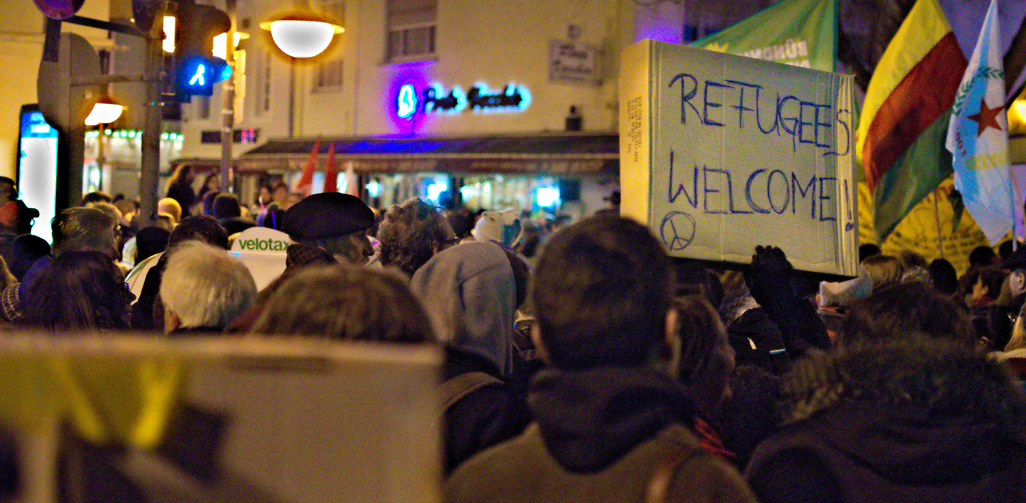Johanna Rolland, EUROCITIES president and mayor of Nantes, explains how cities are showing leadership when it comes to welcoming refugees.
Under the increasing pressure from European Institutions and the impact of tragic current events, Member states are stepping up their response to one of the greatest humanitarian crisis ever faced by the European Union.
As EUROCITIES, the network of major European cities, we released a political statement on asylum already in May 2015 in which we pushed for a structural and sustainable European solution to the refugee crisis: “The trend of people seeking asylum protection in Europe cannot solely be considered an emergency situation but needs to be addressed as a structural issue requiring structural and effective measures that take human rights into consideration.”
Throughout the summer, our cities have continued to provide emergency assistance, housing, healthcare and social services where asylum seekers and migrants were stranded, transiting, or have reached their final destination. We have challenged extremist discourses, and called for open and welcoming societies. We have taken leadership and chosen to support movements emerging at local level to welcome refugees.
The city of Milan has dealt with the transit of tens of thousands of refugees and built on its experience when presenting our position to the European Parliament. Madrid and Barcelona have jointly called for a network of ‘cities of refuge’ at national level to put pressure on their government. Munich and Vienna have been praised internationally for the emergency measures they put in place to welcome refugees who have transited through Hungary. Major French cities such as Rennes, Nantes, Lille, and Strasbourg have committed themselves to becoming ‘cities of solidarity’ and to assume the responsibilities that come with this commitment. Countless other cities across Europe are taking steps and demonstrating leadership.
Many of the proposals and recommendations put forward in our statement are now on the agenda of the European Union and of its member states, including the application of the European directive on temporary protection. We recommended adopting the principle of mutual recognition of refugee or international protection status and the possibility to transfer protection status across Europe for recognised refugees. We also called for the revision of the Dublin regulation, whereby asylum seekers need to register in the country of entry, and which has proven to be inadequate.
Many of the EU commission proposals, outlined by Jean-Claude Junker in his State of the Union speech are steps in the right direction. This must be the priority of the European Union. We are ready to play our role to ensure that the emergency as well as the permanent relocation mechanisms are a success but we need to be directly involved in devising and implementing them.
The EU and its member states need to offer a united and adequate response to the refugee crisis, and hundreds of thousands of refugees will need to be integrated into our societies. It is our role to ensure that asylum seekers settle in well for the duration of their stay, however short or long. Failing to integrate refugees into our societies impedes fundamental rights as well as the full realisation of the benefits immigration can bring; it inhibits asylum seekers and refugees from making a contribution to host societies and can prove costly in the long term for local as well as for national authorities.
We will continue to play a leading role in integrating these newcomers. Cities must therefore be recognised as crucial partners in this crisis and need direct European support for urgent reception and integration measures.
Further information:
-
The next in our series of ‘urban dialogues’ on 21 September in Brussels, organised in partnership with The Centre, will address migration and asylum in cities. More information: http://bit.ly/1HrQHzt
-
EUROCITIES statement on asylum: http://bit.ly/1NgpXmg
-
Follow the conversation on Twitter @eurocitiestweet via #citieswelcomerefugees
-
EUROCITIES is part of the SHARE project.
Photo credit: Lee Royal, Flickr
Source: eurocities.eu



